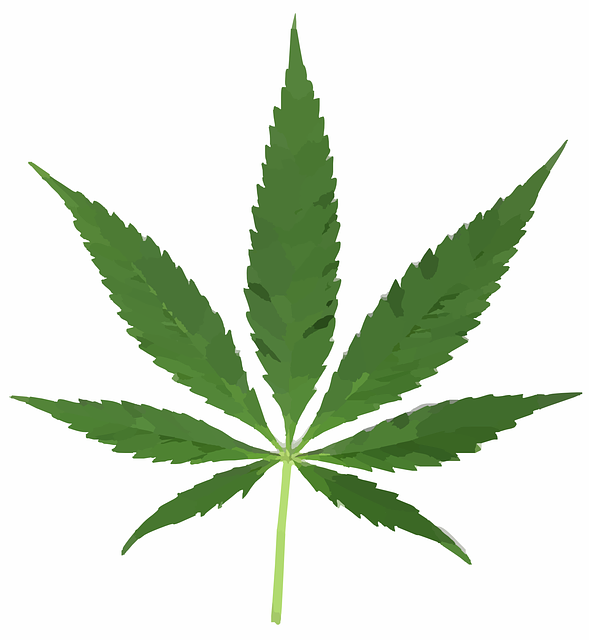The THCA flower, a non-psychoactive component of cannabis, is gaining recognition for its potential cognitive enhancing properties. It is rich in THCA, which users report promotes mental clarity and focus without causing a high. Preliminary studies suggest that THCA may interact with the endocannabinoid system to modulate neurotransmitter release, potentially improving concentration and attention span. The flower's anti-inflammatory properties and its effects on neurogenesis are of scientific interest, indicating its potential as a natural supplement for maintaining and enhancing brain health. THCA flower is being explored for supporting mental clarity and cognitive performance, offering an alternative to psychoactive cannabinoids. Users should start with low doses, consume responsibly within legal boundaries, and be aware of side effects like drowsiness or dry mouth. For the best results, it's recommended to use THCA flower in the morning or early afternoon, and to use precise dosing methods. Regular users often find that it helps with alertness and focus, making it a preferred option for those seeking cognitive support without psychoactive effects. Always ensure to source the THCA flowers from reputable providers to avoid contaminants and ensure safety and efficacy.
Exploring the benefits of natural remedies has become increasingly popular, with many turning to cannabinoids for improved well-being. Among these, THCA (Tetrahydrocannabinolic Acid) Flower is gaining attention for its potential to enhance mental clarity. This article delves into the clarifying properties of THCA Flower and provides a comprehensive overview of its side effects and safe usage practices. Understanding both the benefits and risks associated with this compound is crucial for informed decision-making, ensuring that consumers can harness its potential positively.
- Exploring the Clarity-Promoting Properties of THCA Flower
- Understanding Potential Side Effects and Safe Usage of THCA Flower
Exploring the Clarity-Promoting Properties of THCA Flower

THCA, or tetrahydrocannabinolic acid, is a non-psychoactive cannabinoid found in the raw cannabis plant, which, when heated, converts into THC, the primary psychoactive component of cannabis. The THCA flower, rich in this compound, has garnered attention for its potential cognitive benefits, particularly in promoting mental clarity. Preliminary research suggests that THCA may interact with the body’s endocannabinoid system, influencing neurotransmitter release and potentially enhancing focus and concentration. Users report that incorporating THCA flower into their routine can lead to a clearer state of mind, which may be beneficial for tasks requiring attention and cognitive processing.
Furthermore, the role of THCA in supporting brain health is an area of ongoing scientific investigation. Proponents of THCA flower for mental clarity highlight its potential anti-inflammatory properties and its impact on neurogenesis, the creation of new neurons. This could be particularly relevant for individuals seeking natural supplements to enhance cognitive function without the psychoactive effects associated with THC. As such, the THCA flower is being explored as a promising alternative for those looking to improve mental clarity and cognitive performance in a natural way. Users interested in exploring the benefits of THCA flower should approach its use responsibly and within legal boundaries, considering dosage and individual sensitivity.
Understanding Potential Side Effects and Safe Usage of THCA Flower

When incorporating THCA flower into one’s routine for potential mental clarity benefits, it is imperative to be aware of its possible side effects. THCA, or tetrahydrocannabinolic acid, is a non-psychoactive cannabinoid found in raw cannabis plants that is believed to offer cognitive enhancements and has the potential to support focus and mental acuity. However, like all substances, it can have side effects. Common reported side effects include mild drowsiness, dry mouth, and occasional dizziness, particularly at higher doses. These side effects are typically mild and transient but should be monitored, especially when first trying THCA flower.
To ensure safe usage, it is advisable to start with a low dose and gradually increase as needed, while also being attentive to individual body responses. It is also crucial to source high-quality THCA flowers from reputable suppliers to avoid any contaminants or adulterated products that could exacerbate side effects. Consumption methods can influence the intensity of effects; therefore, it is recommended to consume THCA flower in a manner that allows for precise dosing control. For those seeking mental clarity, using THCA flower may be most beneficial when consumed in the morning or early afternoon, as late consumption could potentially interfere with sleep patterns. Regular users often report increased alertness and focus, making THCA flower a popular choice for those looking to enhance cognitive function without psychoactive effects. Adhering to recommended guidelines and understanding the nuances of THCA flower can help individuals harness its potential benefits while minimizing any adverse side effects.
THCA flower, a non-psychoactive derivative of the cannabis plant, has garnered attention for its potential to enhance mental clarity. While it offers promising benefits, users should be cognizant of its side effects, which can include drowsiness and mild paranoia in some individuals. Safe usage is paramount, and adherence to recommended dosages is essential. It’s always advisable to consult with a healthcare professional before incorporating THCA flower into one’s wellness routine. With careful consideration of these factors, individuals can fully explore the clarity-promoting properties of THCA flower while minimizing potential adverse effects.
